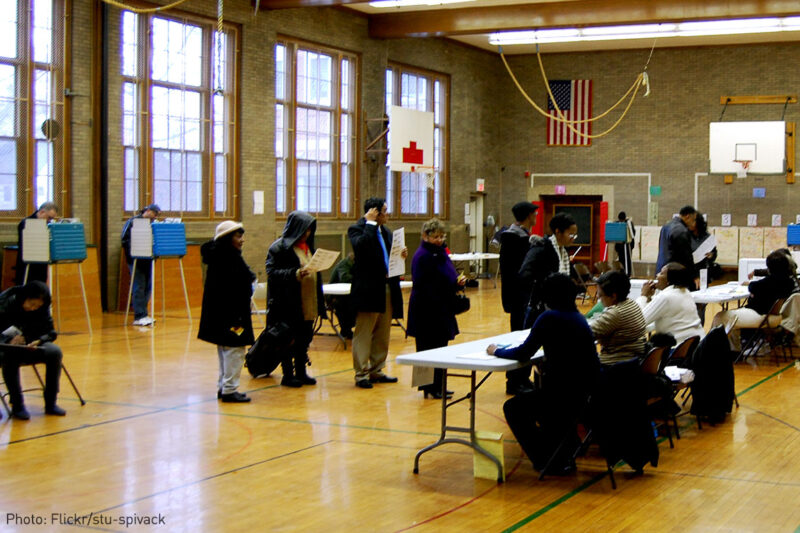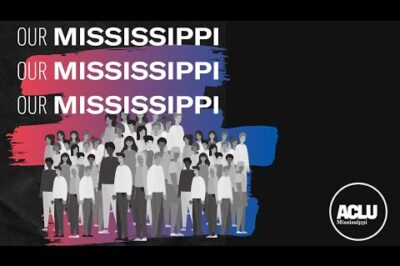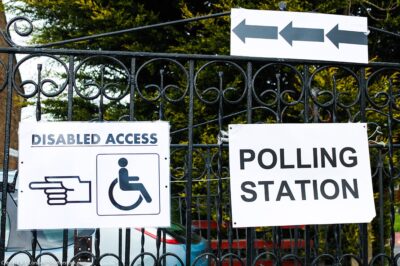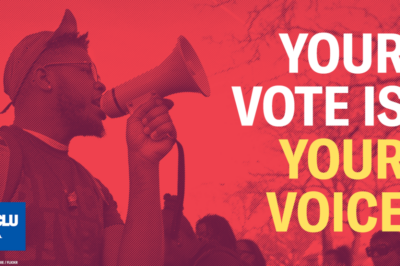
Nearly two years ago, the Justice Department’s Civil Rights Division began an investigation into the Ferguson Police Department for racial bias in the aftermath of the police shooting death of Michael Brown, an unarmed Black teenager. What federal investigators found wasn’t pretty: a police department that consistently engaged in unconstitutional policing and that thought of the overwhelmingly Black community it was supposed to protect and serve as revenue sources for the city’s government. After the Justice Department’s report was released, it was only fair to ask how many other local institutions in the Ferguson area were afflicted with bias.
Yesterday, the answer came when a federal court held that the Ferguson-Florissant School District’s system for electing its school board members violates the Voting Rights Act. The court recognized what many Ferguson-area residents know all too well: Once official discrimination — in education, housing, and public infrastructure — was outlawed in the Ferguson area, it shifted in form to other means of achieving the same ignoble goals.
With racial segregation and discrimination running deep throughout the St. Louis area’s history, present-day discrimination should come as no surprise.
The court found that in the Ferguson area there are, among other inequities, disproportionate traffic stops, fines, and fees levied against African-American drivers; undisputed disparities in schools’ discipline of Black children; and the disproportionate exclusion of Black communities from voting through felony disenfranchisement.
The discrimination is not theoretical or anecdotal but judicially recognized facts.
The court held, “I find that there is a history of officially sanctioned discrimination in the region and the District, and that history is not just a distant memory.” It continued, “[t]here continue to be undisputed disparities between Black and white residents of FFSD on almost every socioeconomic indicator, including employment, wealth, homeownership, access to health care, and other factors underlying basic economic security.”
One area where discrimination now shows itself is in school board elections. School board members in the Ferguson-Florissant School District are elected through an at-large voting system, meaning each of the seven school board seats is elected by the entire district. Because voting is highly polarized along racial lines and African-Americans comprise a minority of the voters in the district — as a result of both the voting age population and lower registration and turnout rates — African-Americans are systematically disadvantaged from electing the candidates of their choice.
If board members were elected using single-member districts, which would allow voters to elect a representative to a particular seat designated to their neighborhood, African-American voters would have a majority in some districts and would consistently be able to elect candidates of their choice.
With regards to the at-large voting system, the court found, “[t]hese continuing effects of past discrimination impact the ability of the African American community in FFSD to participate in the electoral system.”
The district argued that history doesn’t matter: That once the Black voting age population reached a majority of 50 percent plus one person, all of the entrenched advantages in the discriminatory system would suddenly flip and work in their favor. But the court unequivocally rejected the idea that power would “automatically inure to whatever racial group has even a bare majority.”
Of course it won’t. That is ahistorical and just plain silly.
The discrimination is not theoretical or anecdotal but judicially recognized facts.
Discriminatory systems, such as the district’s at-large voting, take root and perpetuate themselves. Electoral structures that dilute the strength of African-American voters’ ballots leave them at an unlawful disadvantage. They prevent Black voters from electing their preferred candidates, which leads to underrepresentation in local government and elected officials with no incentive to serve the Black community as well as no accountability to that community. The system is, in a sense, rigged.
Discrimination once entrenched remains in place until it is systematically uprooted. And in Ferguson, the court has taken a first step towards dismantling it by prohibiting the district from conducting elections until a new system is in place.




